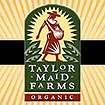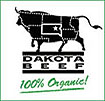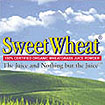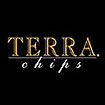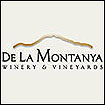Thanksgiving with pedigree -- at $10 a
pound
C.W.
Nevius
When
you sit down for Thanksgiving this year,
take a moment to consider your turkey.
How well do you know it, really?
Do you know where it was raised? Did you
watch your bird when it was roaming free
on an Internet video hookup? Do you know
who its ancestors were?
No?
You mean you invited a total stranger
to Thanksgiving dinner?
If this concerns you, we have the answer.
A small flock of exclusive birds, called
"Heritage Turkeys,'' is making an
impact on Thanksgiving for serious foodies.
These birds are not just free range, drug
free and organically grown. These birds
have papers, going all the way back to
Christopher Columbus. They are farm-raised,
naturally inseminated and have their own
reality TV show on the Internet.
They are also -- and proponents are a
little touchy about this -- expensive.
Prices at the few spots in the Bay Area
that carry them range from $5.99 to $7.99
a pound, but Bon Appetit magazine, which
gives Heritage turkeys the coveted "best
bird'' this year, says they may run "up
to $10 a pound.'' And the Heritage Web
site, heritagefoodsusa.com,
says turkeys ordered on their Internet
site can cost up to $209. That's right,
we may be entering the era of the $200
Thanksgiving turkey. What would dear old
Mom say?
"We do get people who call and balk
at the price,'' admits Sam Mogannam, owner
of the neighborhood Bi-Rite Market in
the Mission. "I cooked one for my
mom last year, and she freaked out, too.
And her son got it wholesale.''
Now, it is easy to make fun of this kind
of conspicuous consumption (and we will),
but there is a real reason for the fuss.
It begins with the traditional supermarket
turkey, which has frankly become a freak.
With its mammoth, genetically engineered
breast, today's prototype can't even mate
by itself. What's more, it is likely to
have been born and raised in a cage, may
rarely have touched the ground and has
been pumped full of growth drugs. To many,
those beach balls on sticks produce meat
that tastes like parchment on a platter.
"Those are your words, not mine,''
says Dr. Scott Beyer, a poultry researcher
at Kansas State University who is looking
into the Heritage turkey breed. Beyer,
who also works with the large-poultry
food industry, wanted to make it very
clear that he does not think that a Heritage
turkey tastes "better'' than the
supermarket kind, just "different.''
Beyer says he was interested in the Heritage
birds because the Kansas farms that raise
them "keep them a turkey,'' meaning
that Heritage birds run free on the farm
and have the distinctive tear-drop body
of a wild turkey.
"And then one day I sat down and
ate one,'' Beyer says. "And I said,
'These guys have a product here.' ''
The "natural'' turkey movement, of
course, is nothing new. "Free range''
turkeys with stickers stipulating that
there were no artificial drug injections
administered have become a staple at the
meat counter. But Beyer says the definitions
have become so vague that "free range''
might mean turkeys raised in confinement
whose only "ranging'' involved a
farm hand picking up the cage and moving
it a few feet.
So in terms of ethical treatment, the
alternative turkeys make a worthwhile
statement. But the real advantage is that
the flavor of a wild turkey is a revelation,
said self-confessed foodie Lisa Meyer
of San Francisco.
"The first time I had one was at
my brother's in Pennsylvania,'' says Meyer,
who ordered a Heritage from Bi-Rite this
year. "It was absolutely divine.
It is richer, and the meat is more dense
and flavorful.''
Those who have tried them seem to agree.
Mogannam says he took a flyer with 35
Heritage birds last year, sold out, ordered
50 this year and thinks, "I may have
underordered.'' Over at the Pasta Shop
in Berkeley, buyer and manager Sara Feinberg
has stocked 25 for each of the last two
years and says she wishes she had ordered
more. Too late now. According to the Web
site, all the Heritage turkeys have sold
out this year.
OK, so let's stipulate that "natural''
turkeys are a good idea. But how do we
get from there to $10 a pound? In places
like Rossmoor, the retirement community
in Walnut Creek, where wild turkeys run
wild, the concept of a $200 gobbler might
not fly. In Rossmoor, the biggest concern
isn't finding a place that sells a wild
turkey; it is keeping from running over
one in the parking lot.
Part of the reason for the high cost is
that Heritage turkeys are allowed to grow
for a full nine months -- twice the time
as for the supermarket brands. There's
also the problem of natural mating. For
the chain store birds, the ol' turkey
baster method may be less romantic, but
it is efficient when you have a deadline.
And finally, says Patrick Martins, who
co-founded Heritage Foods, there is the
pedigree.
"It's been a closed flock for over
a century,'' he said by phone from New
York just before leaving for Kansas to
oversee processing. "In a sense,
they go back to Columbus.''
Martins' company also includes a label
with each bird that details the farm that
produced the food. You can even click
on a link and see a photo of the farmer.
There's even a "turkey cam,'' on
the Heritage site, so you can view birds
roaming, scratching and interacting. (The
cam became considerably less interesting
in the last few days when the turkeys
disappeared, presumably to fulfill their
Thanksgiving dinner duties.)
That, of course, is the irony. Martins'
group has managed to preserve a lineage
of an exclusive turkey breed that was
near extinction. And now these special
birds are selling for big bucks to chefs
who love and appreciate them. And then
cook them for dinner.
"Yep,'' says Feinberg. "You
sort of have to eat them to save them.''
Columbus would approve.
C.W. Nevius' column appears regularly.
His blog C.W. Nevius.blog and podcast,
"News Wrap,'' can be found at SFGate.com.
E-mail him at cwnevius@sfchronicle.com.




